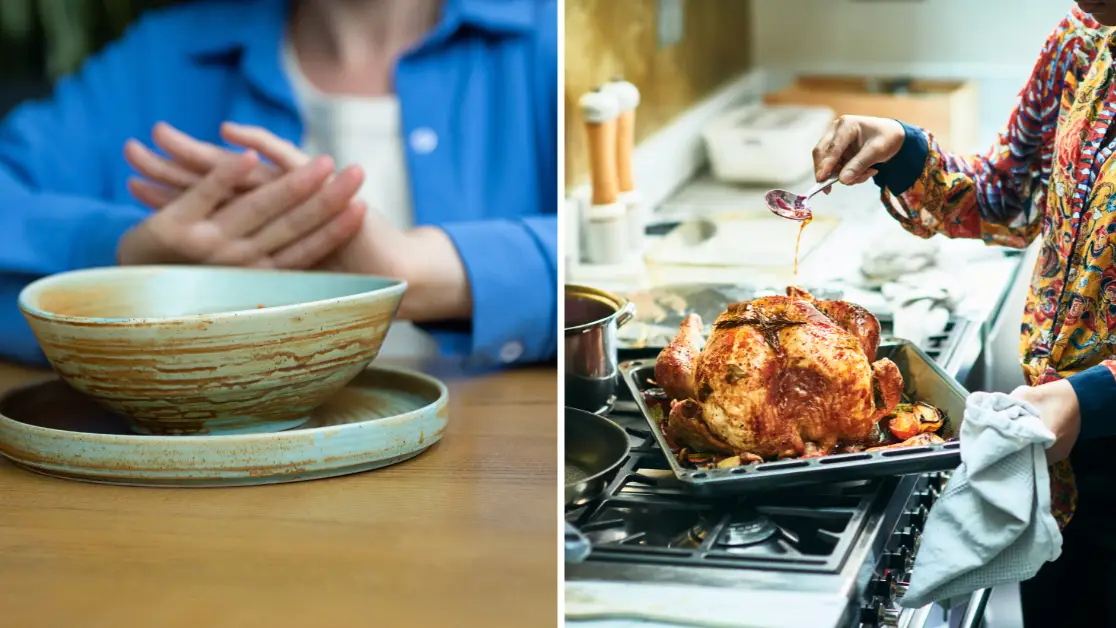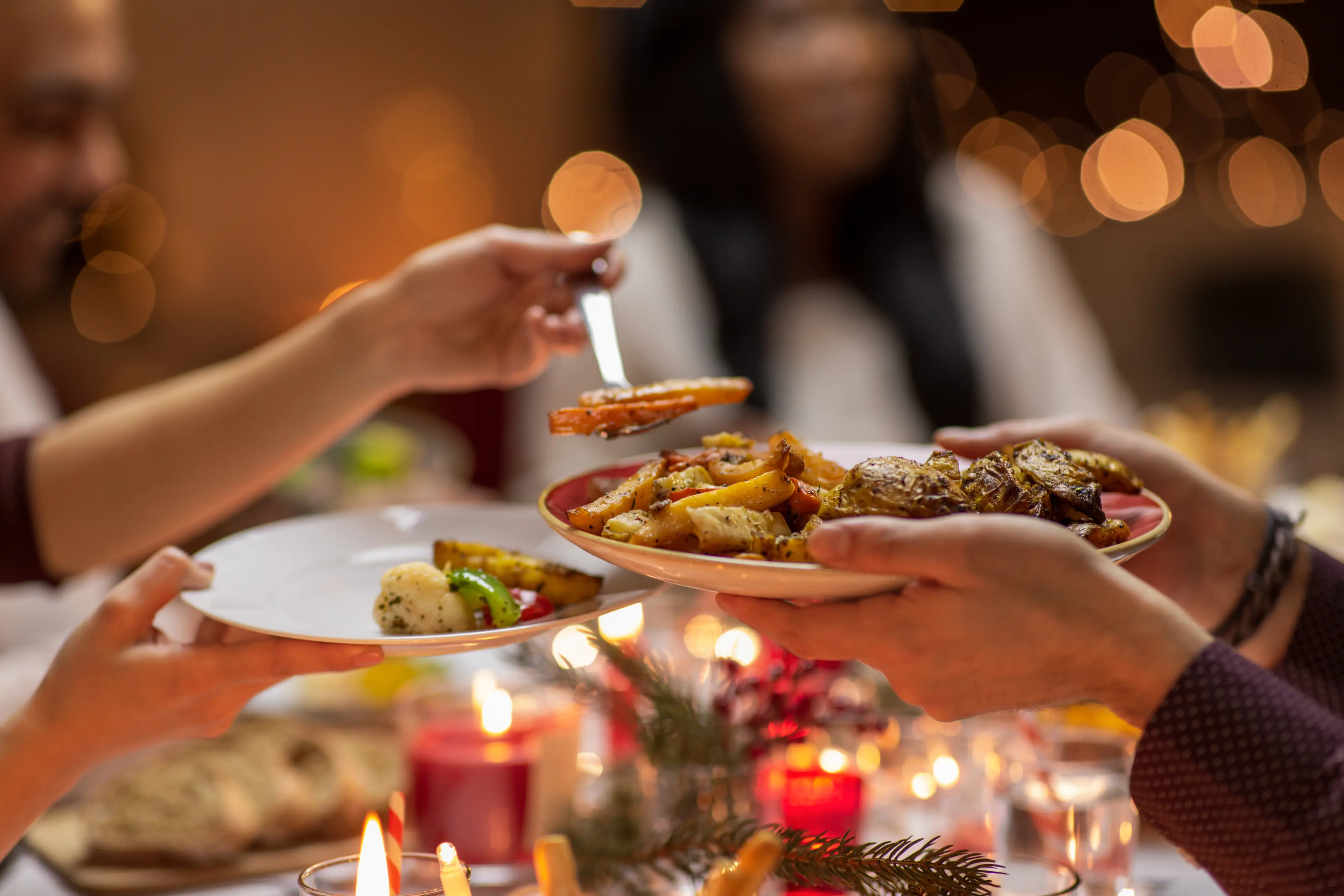
With an especially heightened focus on feasting, the festive season can prove difficult for those suffering with, or who are in recovery from, an eating disorder (ED).
With that in mind, one charity worker is using his platform to advise the friends and families of those might be suffering how best to navigate this food-friendly time of year, including warning them of what not to say and one question that should not be asked.

What are eating disorders?
According to the NHS, EDs are mental health conditions, whereby an individual uses the control of food as a means of coping.
These disorders can present themselves in various different ways, whether that be by over-eating, refusing to eat, or inducing sickness so as not to digest meals.
Advert
The most common types of ED in the UK are anorexia nervosa and bulimia.
The former describes not eating enough food or over-exercising as a means of 'losing weight', while the latter describes taking drastic action - such as making yourself sick - as a means of avoiding putting any weight on.
In the case of both of these conditions, the most 'tell-tale' indicators are drastic weight loss, lying about food consumption, avoiding eating with company, cutting food very small or eating slowly, and regularly going to the bathroom shortly after eating.
As we say, EDs can also emerge in a different way, with binge eating disorder (BED) - which describes eating large portions of food until you feel painfully full - being another common condition in the UK.

The pressures of Christmas
Thankfully, with the right intervention, most people can recovery from an ED - but that doesn't mean it's a walk in the park.
And as any past/current patient will tell you, it's often the most sociable of occasions - like birthdays and Christmas - that come with the biggest amount of food-based pressure.
Tom Quinn - who works as Director of External Affair at Beat, one of the UK's leading ED charities - explained this predicament.
"Pressure to eat large amounts combined with the emphasis on socialising can cause lots of anxiety, especially for people who are hiding their eating or who do not talk openly about their illness," he told Tyla.
"It can be hard to eat around relatives or people they don’t see frequently, who might not know about their eating disorder or might not be very sensitive to their needs."
Quinn went on to explain that increased talk about 'dieting' or 'compensating for eating more food on the run up to Christmas' could also be triggering for ED patients/survivors.

It is also likely that their meal times and exercise routines changing due to schedules and social occasions could prove challenging, and the fact that their support networks may be unavailable over Christmas could be playing on their mind.
Expert advice
As we say, however, the festive season doesn't have to mean doom and gloom for patients, those in recovery or their loved ones - provided that proper caution is taken.
Quinn began by emphasising transparency about the part that food will play in Christmas plans.
"Make sure to organise Christmas activities that do not focus on food," he went on. "For instance a family game, putting up Christmas decorations, watching a film.
"Distractions during mealtimes, like having music on, can help take the focus away from food. After meals, clear food away, move away from the table if possible and find activities that focus on something else."
Asked what advice he'd give to the families of someone battling an ED at this time of year, he went on to emphasise that relatives should be pre-warned not to ask questions or make comments about what the patient/survivor has eaten.

"Even praise can be upsetting, for instance ‘Haven’t you done well eating your dinner?'", he added. "Steer the conversation away from dieting, anyone’s weight, appearance, exercise or food intake.
"Understand that they may need space or to take themselves away for periods of time. Try and plan in some time where fewer people will be around, to give them time to recharge."
If you’re worried about your own or someone else’s health, you can contact Beat, the UK’s eating disorder charity on 0808 801 0677 or beateatingdisorders.org.uk.
Topics: Health, Mental Health, Life, Real Life, True Life, Christmas, Food and Drink